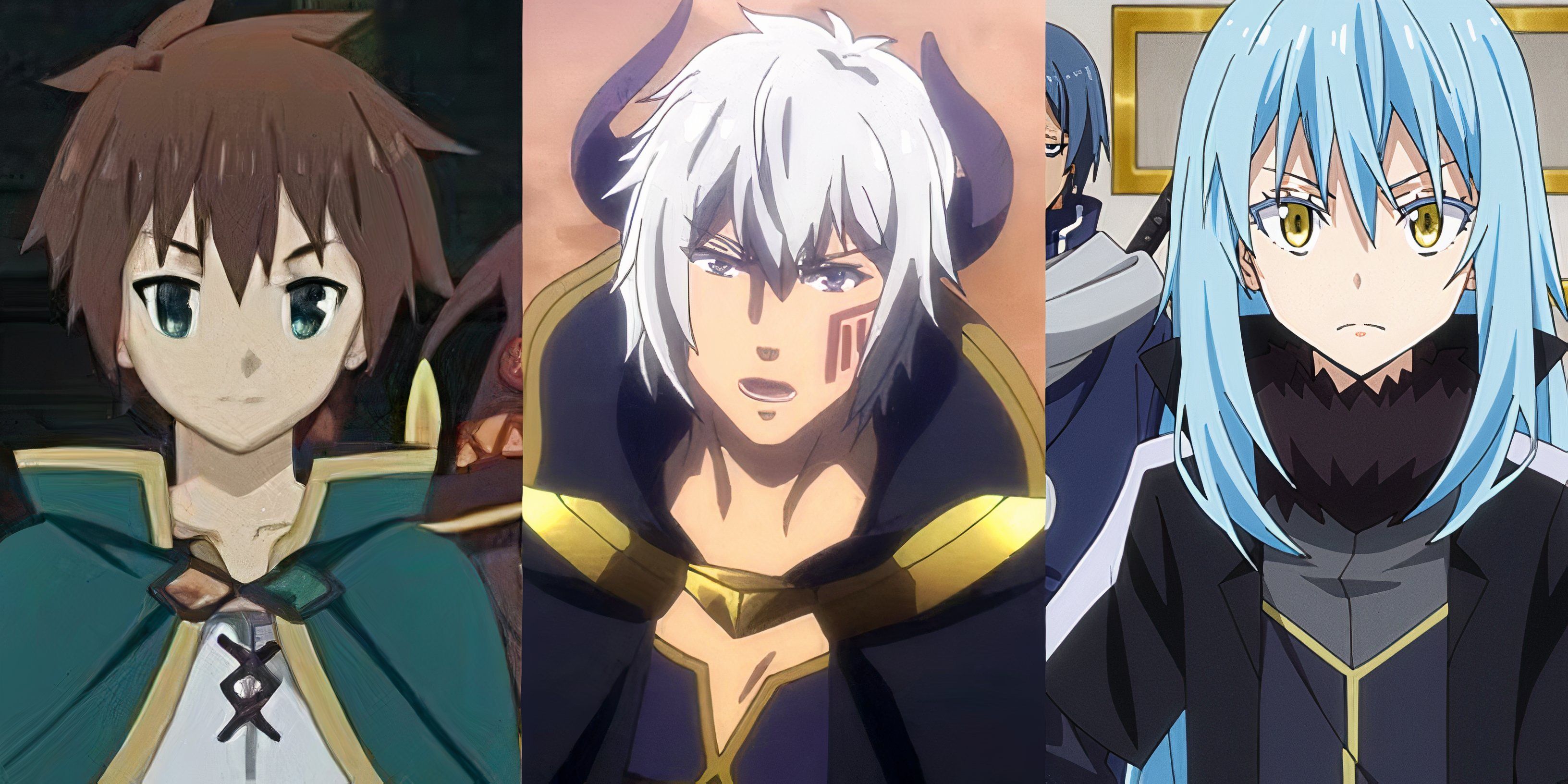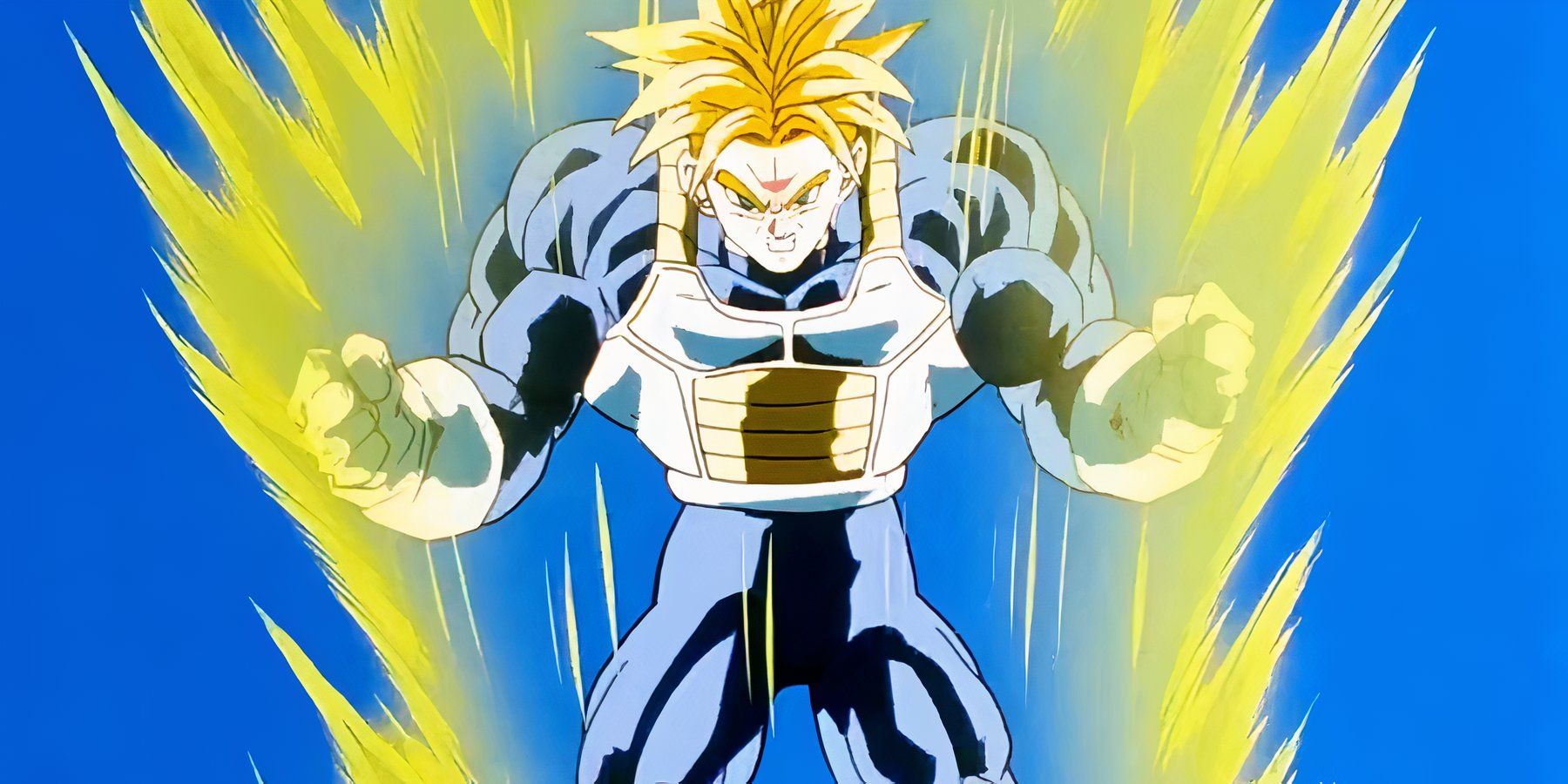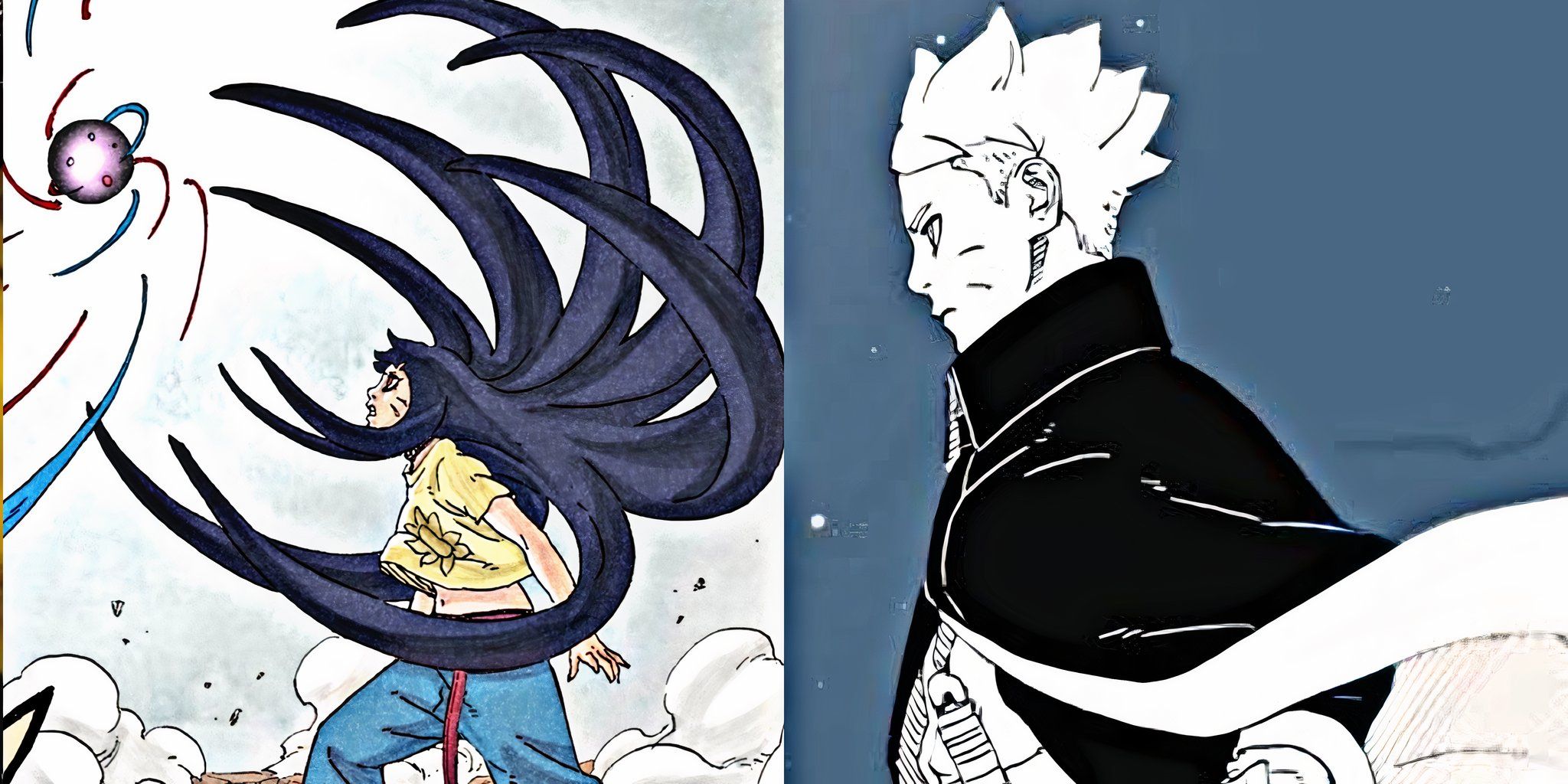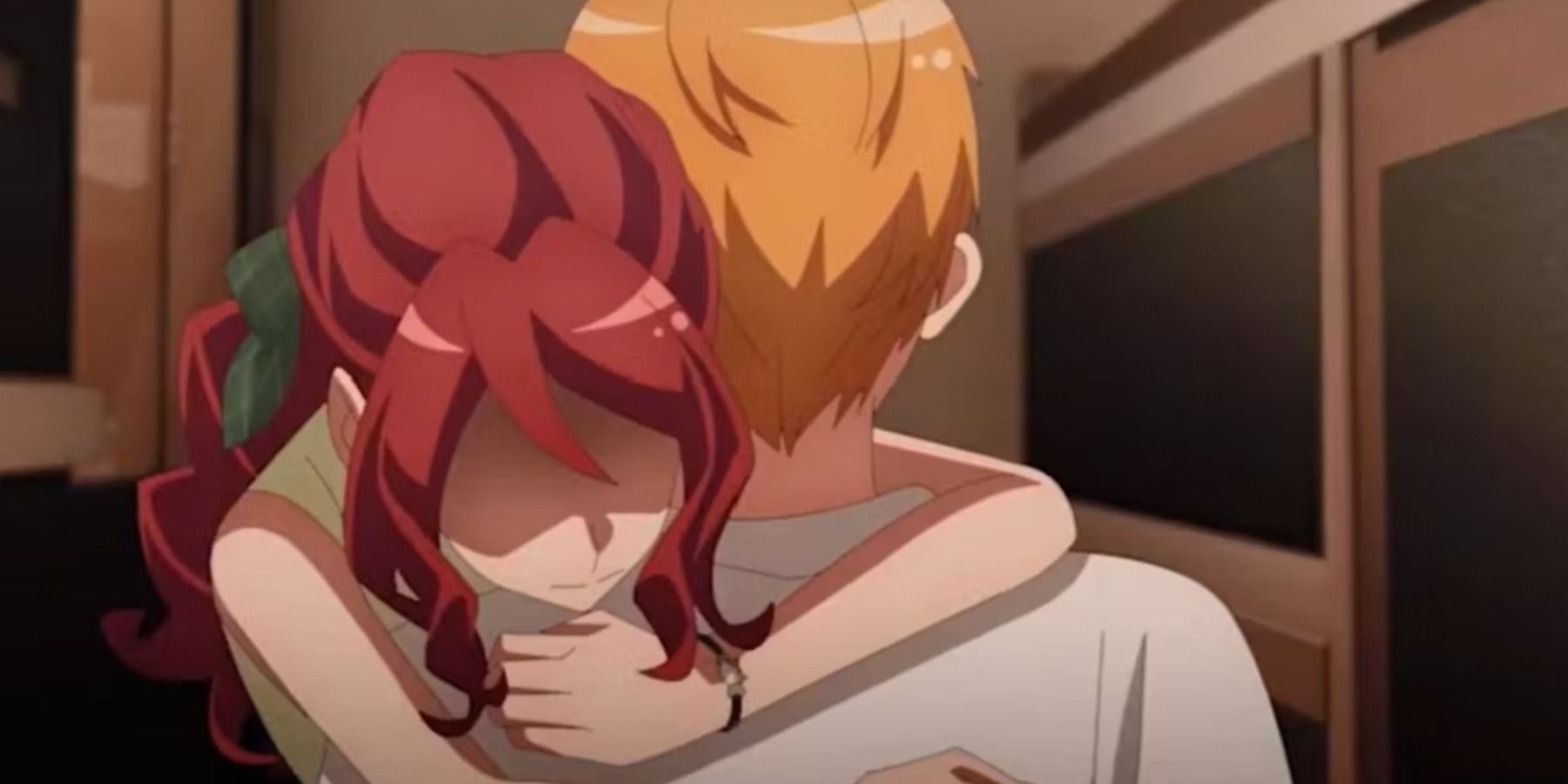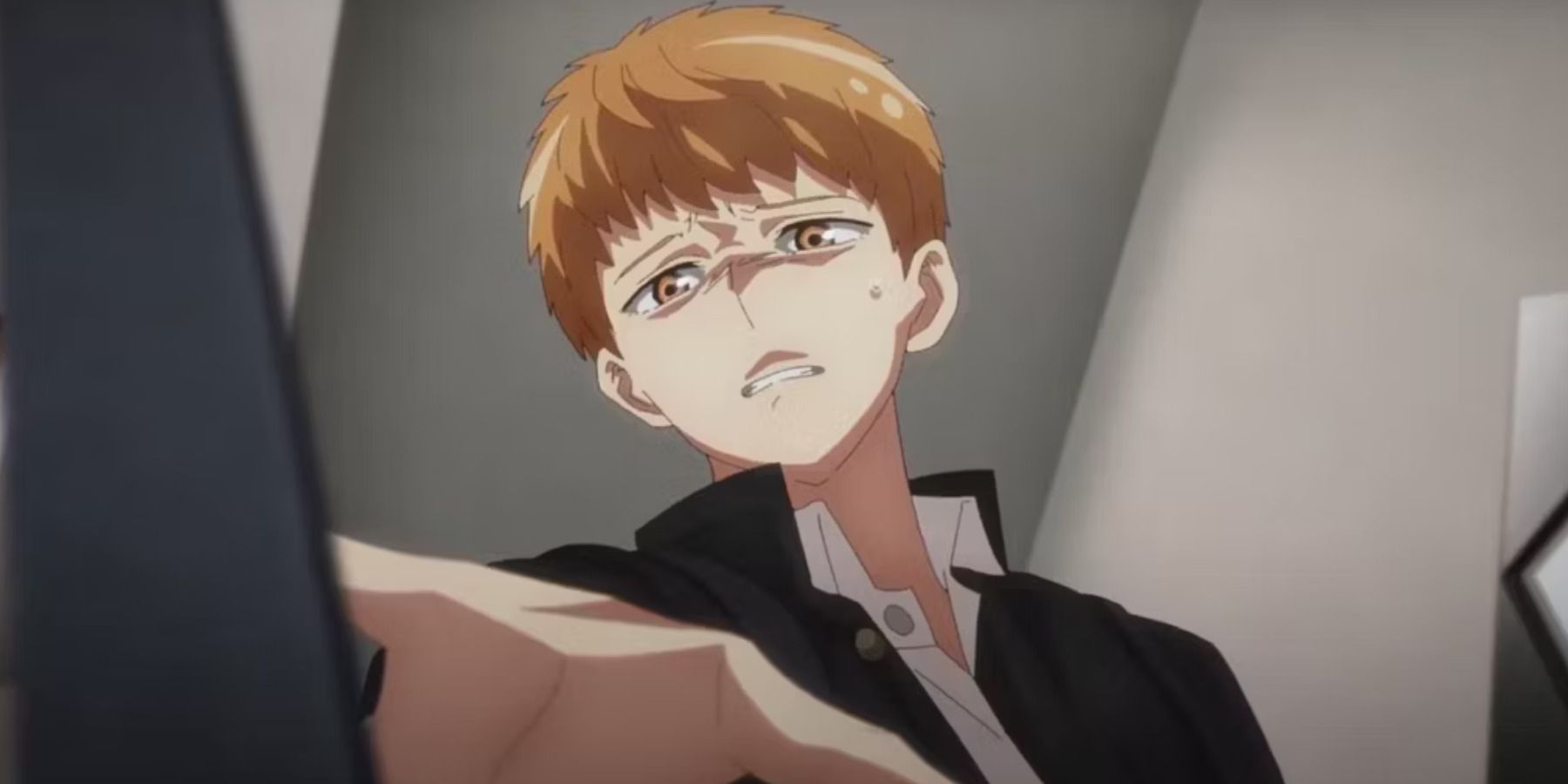The following contains spoilers for Romantic Killer, now streaming on Netflix.
Romantic Killer is an isekai anime that is challenging norms and breaks stereotypes and tropes. It also spreads a very important message regarding a very scary and problematic crime that is treated in a very sloppy fashion in real life, and, unfortunately, Japan is not an exception to that.
When Anzu Hoshino, the anime’s antiheroine, is left without her three passions, that is, video games, her cat, Momohiki, and chocolate, for the alleged sake of Japan’s future, the first guy to become part of her real-life otome game is Tsukasa Kazuki.
What Lies Behind Tsukasa's Apparently Cold Behavior
If at first Tsukasa seems to be a cold high school boy who dismisses girls on a whim, we are being hinted that there is something else going on behind his actions after he and Anzu end up living together, as a result of the maneuvers of the magic girl Riri.
As time goes by in the story and with the increasing interactions between Tsukasa and Anzu, it is revealed that his apparent cold nature is just a façade, and the viewers get to know that after he is shown to fear being recognized, and he shows an increasing fear of being alone when he went shopping for clothes with Anzu, he hates to be the focus of people’s attention, and later the viewers become fully aware of the facts that led to him going to live alone before he ended up caught in Riri’s romance web.
It is shown that Tsukasa has a very pleasant nature and that he is very pleasing as well, at least he was before incidents occurred, which led him to wish to run away from the spotlights and evade people’s attention, mainly those of girls.
When magically forced into a situation in which he is left with no option but to live with Anzu, Tsukasa ends up facing his fears and learns he can trust Anzu, who is a girl who shows that she respects and cares for him when she deals with and strongly dismiss the unwanted attention he gets from girls at school, calling him a friend and helping him get rid of them, and then she continues to show him a lot of support.
While their friendship reaches even higher levels with them living together and with him trying to avoid romance (and later on the viewers will get to know the entire traumatic reasons behind his decisions) as much as Anzu is trying to avoid it as well, the viewers get to know more about what led Tsukasa to leave his parents’ house in a constant state of fear of attention. However, if Anzu is trying to avoid romance and not conform to what is expected of women in general society, Tsukasa is avoiding it for a very different reason that is not shown upfront.
The Unfortunate Event That Led Tsukasa Leave His Family Is Revealed
Later on, in a very shocking sequence revelation, it is shown that Tsukasa was the victim of stalking, when and after his stalker gets to him again because she spotted him in a picture on social media. People usually state that social media can be harmful, but the real problem is not in the technology itself, but in the way people with bad intentions make use of them. In this case, Tsukasa’s former stalker strikes again, and the audience gets to know how his family dealt with the incident and the crime. With his stalker showing little to no remorse at all for her actions, and the boy traumatized and judged, the serious matter is very well addressed by this anime, which chooses, as another way to subvert a lot of tropes, to have the victim of stalking in this be a man, not a woman.
The terrible surprise is that the viewers are shown how his father treated him as though he were the villain and not the victim of a very scary crime. The boy is not only the victim of the crime of stalking, but he is also the victim of the prejudices, stereotypes, and sexism that have not yet been fully abolished from the ruling minds of society. It is expected of him to "man up" and deal with problems in an adult fashion, while his own father considers him guilty for something that the stalker, who is an older uandere woman, who becomes very unhealthy obsessed with him after the is gentle with her just because this is his nature.
Her scary behavior is revealed in the final episodes of the anime, starting at episode 11, with her going from pursuing the boy who was nice to her when she was ahving a bad day to believing they are meant to be together, then believing they are in a relationship, completely deluded, and scarily sending him gifts, then escalating into drugging the boy and breaking into his house, taking pictures of him and with him, posting lies she created on social media – and how does his family react to that?
The “blame the victim not the perpetrator” is not a trope or a stereotype. Unfortunately, it happens a lot in real life, and a shoutout like the one in Romantic Killer, with Anzu not only believing in and supporting her friend, but also scolding Tsukasa's father for his actions towards his son, sends a powerful message regarding this important matter.
Vicious behaviors like those of the woman who stalks Tsukasa should never be regarded as being right or acceptable, neither encouraged nor should he or any other victim like him have to run away, scared, and hide, because nobody takes a stand, and no real action is taken against the actual villain in this case. Also, the boy is not responsible for the actions of the crime perpetrator, he did not do anything wrong by being gentle to the woman, and should not have to carry the deep psychological scars that the woman’s actions, along with the reaction of his own father, have left on him.
Even if the solution in the anime is a magical one, it is a call for action from those who have the authority, in real life, to properly deal with this crime and address it for what it is: a crime, even if committed by a woman. Not only women should not have to endure unwanted attention and improper behavior from men. Boys and men are also not under any obligation to please women, and shunning unwanted attention from them is not unmanly, but a right of the man to preserve himself as an individual.
The message is well conveyed and reiterated, especially when Anzu confronts Tsukasa’s father near the end.
Romantic Killer spreads the message, loud and clear, that the victim of stalking and sexual harassment is the victim, not the villain, no matter the gender of the actual victim of this type of crime.

